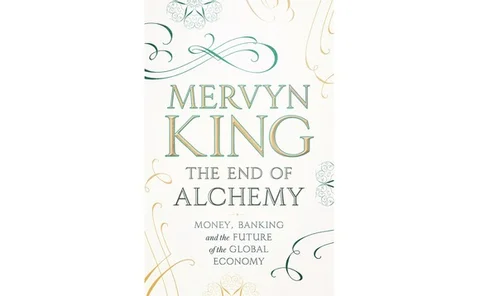Financial crisis
RBNZ proposes new powers over FMIs in times of crisis
Final crisis management plan proposal details two-tiered framework for FMIs; RBNZ and FMA would act if contingency plans not up to scratch
Economists still scrambling to adapt models to lower bound
Many traditional economic models perform poorly now major economies are near the effective lower bound, but economists at the RES annual conference offer a range of solutions
IMF will ‘take stock’ of capital flow policies
IMF may undertake further work on capital flow management and foreign exchange interventions if analysis highlights need for it; fund will also re-examine global safety net
BIS paper: short-term interest rate may no longer be enough to set policy
Globalised debt markets, the falling long-term interest rate and dollar debt accumulation has altered every major aspect of the monetary transmission mechanism in emerging markets, authors say
Networks did not spread 2008 shocks in eurozone money market, paper argues
Banking networks in the eurozone did not play a major role in spreading shocks in the financial crisis, ECB working paper argues; eurozone banks are ‘not network dependent’
Book notes: The end of alchemy, by Mervyn King
King’s book on how to fix everything that is wrong with the financial and economic system lays out radical proposals that deserve serious consideration
Mervyn King calls for radical banking reform
Former Bank of England governor wants to curtail banks’ use of maturity transformation, putting the central bank’s lender-of-last-resort role at the heart of his new banking system
Wholesale funding shocks hit credit supply, paper finds
Shocks to securities and interbank lending markets have significant effects on banks’ supply of credit, an ECB paper finds; researchers use monthly loan data for eurozone banks
Book notes: Stabilising capitalism: a greater role for central banks, by Pierluigi Ciocca
Pierluigi Ciocca offers an excellent, brief and crisp account of the main issues facing central banks today
End of sanctions offers chance to fix Iran’s banking sector
Iranian banks struggling with high levels of non-performing loans may see their situation improve, but deep reforms are needed and the political situation remains complex
Book notes: Between debt and the devil, by Adair Turner
Adair Turner offers a lively and well-structured account of his proposals to radically overhaul the financial sector
Book notes: Debtonator, by Andrew McNally
A lucid book questioning society’s bias towards debt and against equity
BIS paper models self-generating financial crises
Authors set out DSGE model where financial crises can be triggered either by an external shock or the endogenous generation of credit booms and busts
Financial variables improve output gap estimates, BoE paper finds
Adding financial variables to estimates of the output gap can allow policy-makers to spot trouble on the horizon more easily, authors say
Lender of last resort function must be flexible to cope with crises, BoE’s Hauser says
Central banks should prepare in advance to open up lender of last resort frameworks to new counterparties and instruments, Bank of England executive director says
Bank recapitalisation is a ‘powerful’ policy instrument, paper suggests
Economy likely to remain in an ‘anaemic state’ until certain conditions met, research says; bank recapitalisation more effective than fiscal expansion in encouraging aggregate demand
Paper models complications to systemic financial shock responses
Different classes of illiquid asset and different types of banking network produce complicated responses to systemic financial shocks, Bank of Italy working paper argues
BIS deputy: animal spirits need stability
Investors need certainty over long-term prospects for sustainable growth, so more short-term stimulus by central banks is likely to make the problem worse, Pereira da Silva says
Haircuts on sovereign debt ‘open the door for more leverage’, research finds
Prolonged low interest rates also contribute to an overleveraged economy in case of crisis; though in times of ‘low crisis’ they can help decelerate fiscal adjustment
ECB’s Cœuré calls for new attitude to liquidity
Liquidity in the European banking system should not return to its pre-crisis levels, Benoît Cœuré tells a Davos audience; CMU offers chance to fix problems which caused crisis, he adds
Central banks struggling to exit ‘confused period’, economists say
The financial crisis forced a regime change on central banks, raising challenges to independence, analysis and policy tools, which have yet to be fully resolved, say panellists in Brussels
BoE paper seeks to improve forecasts with adaptive model
Using an adaptive model in conjunction with heavy-tailed t-distributions allows authors to deliver ‘substantial improvements’ in forecasting inflation
Basel Committee completes trading book review
Much-anticipated redesign of market risk framework seeks to capture risks the Basel accord failed to guard against in 2008; impact study implies median 27% increase in capital charges
Central Bank of the Year: Central Bank of Ireland
Well-capitalised banks, new supervision measures and timely macro-prudential policy action to cool an overheated property sector have gone far to restoring the Central Bank of Ireland's credibility





















